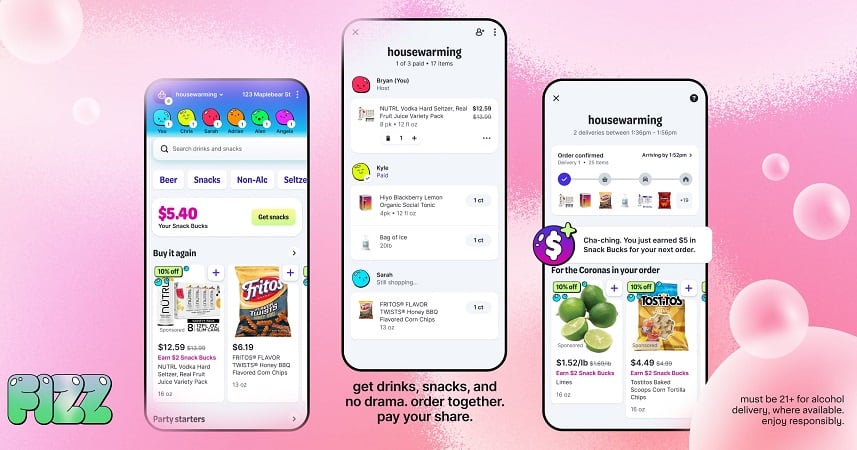Born between 1997 and 2012, more than half (55%) of Gen Z say they are trying to lose weight, according to research by The Brightfield Group, which is higher than previous generations at their age, according to research gathered by Mattson, Spins and Moxie Sozo in a report following Natural Products Expo West 2024.
How Gen Z manages their weight and diet will depend in part on whether they have access to weight-loss drugs, accurate nutrition information and a clear understanding of themselves in a world heavily influenced by social media filters and careful curation.
For example, while a study by Tebra found 37% of Gen Z want to lose weight with help from GLP-1 medications, the high price point of these drugs will keep them out of reach for many in this generation.
Instead, diet may be a more viable and affordable route.
Three-quarters of Gen Z trying to lose weight will rely on following specific diets, according to The Brightfield Group – opening the door for brands and retailers to innovate and position existing products to help fill their goals and diets.
But this should be done with care given the generation’s need for accurate information and susceptibility to the downsides of diet culture.
Marketing to Gen Z and Alpha
This story is part of a special collection of articles that explores how brands and retailers can earn Gen Z consumers' loyalty through value, convenience and affordability.
Check out the full collection of stories here .
To receive future special editions via email, register for free for FoodNavigator-USA’s newsletters. Find out more by clicking the yellow ‘register’ button at the top of our homepage or by visiting https://www.foodnavigator-usa.com/Info/Why-register/
Gen Z’s dietary preferences
As a whole, Gen Z is more likely than any other generation to follow a specific eating pattern and least likely to feel positive about the healthfulness of the food and beverage choices, according to the International Food Information Council’s most recent Food and Health survey released last summer.
IFIC found two-thirds of Gen Zers, aged 13 to 28 years, followed a specific dietary pattern or diet in 2024, compared to only 52% of Gen Xers and 42% of Boomers in the same year.
Brightfield Group reports that Gen Z gravitates towards plant-based diets to reach their weight loss goals and also over index for high protein and gluten-free diets. Research presented by FMI – The Food Industry Association found other diets popular with Gen Z include ketogenic or bulletproof (9% of Gen Z compared to 3% overall), low-carb (13% of Gen Z versus 8% overall) and whole foods diet (12% vs 6%).
About a quarter of Gen Z also interpret healthy food as ‘all natural,’ ‘fresh’ and ‘a good source of protein,’ according to Attest research.
Gen Z is less likely to have a positive relationship with food
While research suggests Gen Z is more likely to mindfully follow a specific dietary pattern than other generations, only 54% described their relationship as very or somewhat positive compared to 59% of Gen X and 61% of Boomers, according to IFIC.
IFIC also found Gen Z were more likely to diet to improve the physical appearance compared to older generations, and were more likely to see and trust food and nutrition content on social media than older generations.
This could prove to be a dangerous pairing for Gen Z, and an area where food and beverage marketers need to tread carefully, according to research gathered by Mattson, Spins and Moxie Sozo in a report following Natural Products Expo West 2024.
“With platforms like Instagram, TikTok and YouTube flooded with content related to food trends, recipes and dieting tips, young individuals are constantly exposed to a myriad of food options and nutritional information,” according to the report.
“However,” it adds, “this exposure to curated representations of food can also contribute to unrealistic standards and unhealthy relations with food among Gen Z.”
Young women are particularly susceptible to the impact of social comparison from social media, it notes, pointing to a 2021 YPulse Personal Care and Beauty Behavior Report that found 63% of women said they wished they could look the way social media photo filters make them look in real life compared to 48% of men. Likewise, more women (56%) said social media makes them feel bad about their appearance than men (44%).
Wanted: More dietary guidance
Social media also can be a force for good for younger generations seeking dietary advice – as long as they can find clear, accurate information, according to the pan-European organization EIT Food.
It found nearly 80% of young people need advice on how their diet impacts their mental health and two-thirds turn to social media for information about healthy food and recipe ideas.
Nearly three-quarters of Gen Z are more likely to see food and nutrition content on social media and trust it, compared to 59% of Boomers, according to IFIC.
In part because 75% of Gen Z are “always looking to learn more when it comes to food purchases,” research by Attest suggests they “have a more holistic, inclusive and informed approach to food” than their counterparts during the peak diet culture.




